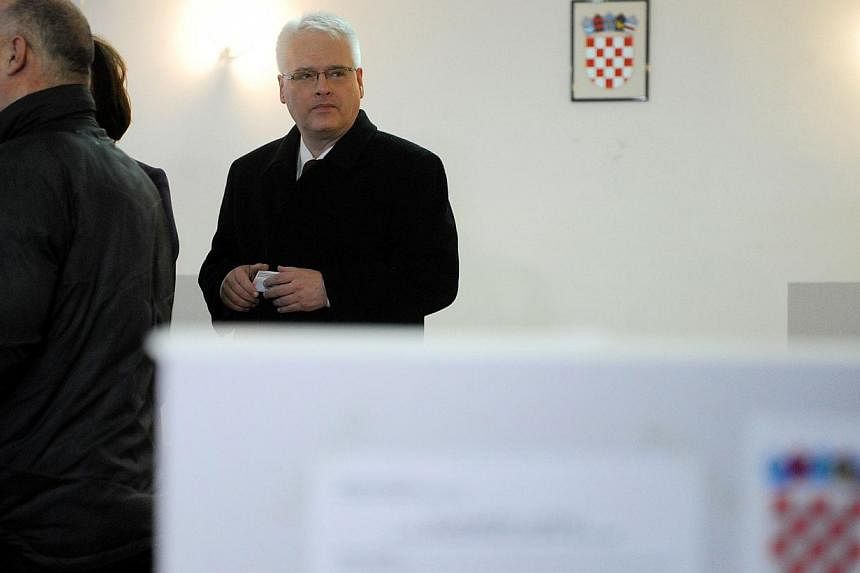ZAGREB (AFP) - Croatia's President Ivo Josipovic and his conservative rival on Sunday headed for a January run-off following a tight first round vote in a country battling a severe economic crisis.
Centre-left incumbent Josipovic and his main challenger Kolinda Grabar-Kitarovic will face off on Jan 11 after both failed to win more than 50 per cent outright in the first round of voting for the largely ceremonial post.
In a neck-and-neck race, Josipovic garnered 38.9 per cent of the vote compared to Grabar-Kitarovic's 38.1 per cent, according to exit polls released by the national HRT and Nova television stations immediately after polling stations closed.
"I have a very good feeling. I expect to win, what else?" Josipovic, 57, said earlier after voting in downtown Zagreb.
Bad weather and snow that hit most of the European Union's youngest member overnight did not affect turnout.
The soft-spoken Josipovic - the popular third president of the former Yugoslav republic since its independence in 1991 - is a member of the Social Democratic Party (SDP), the main partner in the ruling coalition.
A former law professor who won office on an anti-corruption ticket, Josipovic famously played Beethoven's "Ode to Joy" on piano when Croatia joined the European Union in 2013 hoping membership would revive its flagging economy.
But the tourism-reliant economy of the small Adriatic nation of 4.2 million remains one of the EU's weakest after six years of recession.
Unemployment is close to 20 per cent, half of the country's youth are jobless and public debt is close to 80 per cent of gross domestic product (GDP).
Grabar-Kitarovic, 47, who represents moderates within HDZ, is a former foreign and European affairs minister and an ex-NATO assistant secretary general.
During the campaign she slammed Josipovic's lack of initiative in tackling Croatia's economic woes.
The centre-left government has been accused of failing to carry out the necessary reforms to address the country's huge and inefficient public sector or improve the investment climate.
Weighed down by the SDP-led government's unpopularity and accused by critics of not taking a clear stance on major issues, Josipovic has taken firmer attitudes in the months leading up to the vote.
On the economic front, he pledged a "better economy with jobs for every young person".
The other two candidates in the race were rightist Milan Kujundzic and activist Ivan Vilibor Sincic, who is known for fighting against forced evictions for people who fall behind on debt repayments.
Exit polls by the Ipsos Puls agency put Sincic in third place with 15.6 per cent, followed by Kujundzic with 5.7 percent.
Analysts said 24-year-old student Sincic had been the big surprise of the campaign, striking a chord with voters disenchanted with the political elite and looking for change.

